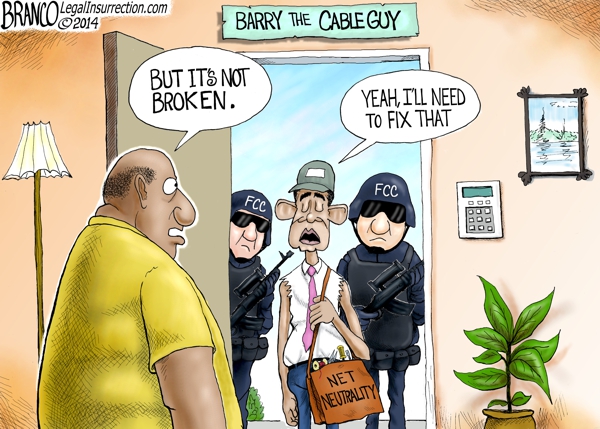Net Neutrality decision coming in February
No more public commentary. It’s time to decide the future of the internet.

Get ready for the next big net neutrality fight, because it’s coming sooner than you think.
The FCC has released statements indicating that it’s ready to decide the future of the internet, and will do so at its February 26th monthly meeting. The Washington Post had it first:
President Obama’s top telecom regulator, Tom Wheeler, told fellow FCC commissioners before the Christmas holiday that he intends to circulate a draft proposal internally next month with an eye toward approving the measure weeks later, said one official who spoke on the condition of anonymity because the agency’s deliberations are ongoing. The rules are meant to keep broadband providers such as Verizon and Comcast from speeding up or slowing down some Web sites compared to others.
…
It’s still unclear what rules Wheeler has in mind for Internet providers. Analysts and officials close to the agency say that momentum has been building recently for far more aggressive regulations than Wheeler had initially proposed. Advocates of strong net neutrality, including President Obama, have urged the FCC to begin regulating Internet service providers using the same law it uses to oversee telephone companies — Title II of the Communications Act. Industry advocates have resisted that call, saying the FCC should continue to lightly regulate Internet providers under Title I of the act.
If the vote proceeds as planned, it will mean that the FCC won’t have time to process any remaining public comments on the issue. Although public opinion doesn’t necessarily determine the outcome of these decisions, conservative groups like TechFreedom and American Commitment have largely dominated the official conversation via comment drives, which means that progressive, pro-net neutrality groups are going to have to take their fight to the mainstream media if they want to improve their optics.
Both policy analysts and Republicans in Congress saw this move by the FCC coming, and lawmakers have taken steps to preempt the FCC from making new rules regulating internet providers:
One important piece of the proposed legislation would establish a new way for the FCC to regulate broadband providers by creating a separate provision of the Communications Act known as “Title X,” the people said. Title X would enshrine elements of the tough net neutrality principles called for by President Obama last month. For example, it would give FCC Chairman Tom Wheeler the authority to prevent broadband companies from blocking or slowing traffic to Web sites, or charging content companies such as Netflix for faster access to their subscribers — a tactic known as “paid prioritization.”
But those new powers would come with a trade-off, the people said. In exchange for Title X, the FCC would refrain from regulating net neutrality using Title II of the Communications Act — a step favored by many advocates of aggressive regulation, including the president, they said.
The FCC is going into this knowing that whatever decision it makes, it’s likely to get hit with a lawsuit brought by one of the major providers. Still, pro-NN groups are putting enormous pressure on the FCC to act, and they’re using a social justice angle to do it which, as we all know, can be incredibly effective once it hits the national media’s spin machine.
Whoever wins the race to a final decision—Congress, or the FCC—won’t have the last word on the future of the internet, but they’ll have an enormous head start.
Check out my post from late last year for more information about the problems with net neutrality.
 DONATE
DONATE
Donations tax deductible
to the full extent allowed by law.








Comments
Why do we even need a Congress and Senate when we have agencies and courts running our country?
That’s what Boehner and the GOP think, too.
I am assuming, in the interest of classically trained professional journalistic ethics (yeah, I know), NBC and MSNBC will refrain from coverage of this because of their Comcast ownership and the apparent conflict of interest. Right?
Good one!